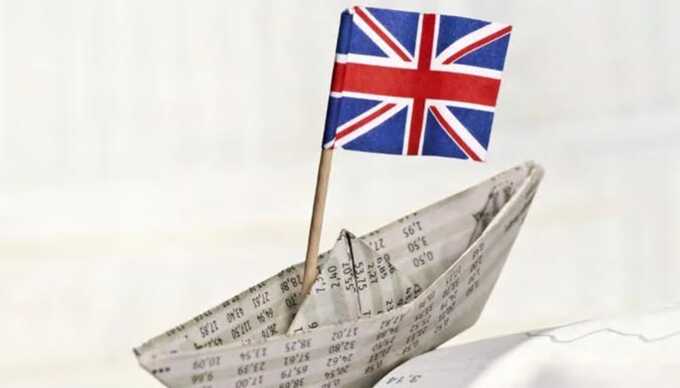Brexit cost UK £27bn in lost trade in first two years
Despite fall in trade, LSE study says overall impact was more limited than OBR forecasters first estimated
The damage from Brexit to trade links with the EU cost the UK £27bn in the first two years, but the overall impact was more limited than forecasters first estimated, according to the most comprehensive review of the issue since Britain fully left the bloc at the start of 2021.
Researchers based at the London School of Economics found that trade barriers had been a “disaster” for small businesses and had forced thousands to stop trading with EU nations.
The academics from the Centre for Economic Performance looked at evidence from more than 100,000 firms, and found that by the end of 2022, two years after the UK signed the trade and cooperation agreement (TCA) with Brussels, total British goods exports had fallen by 6.4% and imports by 3.1%.
An assessment by the Office for Budget Responsibility (OBR) has forecast that the UK will suffer a 15% slump in trade, leading to a 4% reduction in national income, over the longer term.
CEP researchers said that while it was possible the UK might still experience a fall of the magnitude envisaged by the OBR, the government’s independent economic forecaster, there would need to be a further deterioration in imports and exports with the UK’s largest trading partner.
Thomas Sampson, one of the report’s authors, said: “We find that, through the end of 2022, the TCA reduced goods trade by less than half as much as the OBR projected. That said, the OBR number is a long-run projection and we only study the first two years of the TCA.
“Whether the decline in trade will get bigger over time remains to be seen. But the additional fall would have to be larger than what we’ve seen so far in order to match the OBR’s projections.”
Rachel Reeves is likely to welcome the findings, which show the resilience of the economy when confronted by a large trade shock. But it will also put pressure on the chancellor to support efforts to lower trade barriers over the next couple of years to prevent the damage from getting worse.
A review by the OBR of its previous predictions may result in higher growth forecasts once the relatively brighter prospects for UK trade are included.
The UK is due to start negotiations next year on the next phase of the TCA. Ministers are expected to resist calls for the UK to open its agriculture markets to competition from EU farmers and fishing trawlers in return for greater access for UK goods to the bloc.
Examining the first two years of the TCA, the authors said it was clear large firms had mostly carried on trading at the same level with EU partners.
However, smaller exporters – those with fewer than 100 employees – had suffered badly. More than 14,000 of the 100,000 firms examined had quit trading with the EU altogether. Almost all were smaller businesses.
Imports held up better than exports after larger firms found ways to source components and raw materials from countries outside the EU.
Sampson, an associate professor of economics at the LSE, said: “The TCA has been a disaster for small exporters, many of which have simply stopped exporting to the EU. At the same time, larger firms have adapted well to the new trade barriers. Consequently, total exports have, at least so far, declined less than expected.”
The research is the first to study the impact of Brexit on trade using customs records collected by HMRC. Researchers said the customs data allowed them to view individual business relationships and “highlight how larger firms have adjusted to the new trade relationship better than small and medium-sized firms”.
The TCA did not include tariffs. But it did introduce barriers to trade such as customs checks and paperwork, rules-of-origin requirements, excise duties, sanitary and phytosanitary checks on the movement of animals and plants, and the need for exporters to prove their products comply with regulations in their destination market.
However, many of these checks have been repeatedly delayed, with further measures still due to come into effect next year.
The study examined only the trade in goods and not the import and export of services, which mostly lay outside the jurisdiction of the single market and customs union.
Kalina Manova, a co-author and professor of economics at UCL, said: “Firms’ performance in the medium to long run will hinge on their ability to maintain supply networks and diversify export demand in the face of higher and uncertain non-tariff barriers to EU trade.”
The report found that the UK’s exit from the EU’s single market and customs union at the start of 2021 had led to immediate declines in exports and imports with the EU. However, it added: “We also show that firms responded to this shock in ways that dampened the fall in overall trade. Large firms did not experience a drop in exports, while importers partly compensated for lower EU imports by sourcing more from outside the EU.
“Consequently, we find that, at least in the short run, aggregate trade proved moderately resilient to disintegration.”
Read more similar news:
Comments:
comments powered by Disqus


































